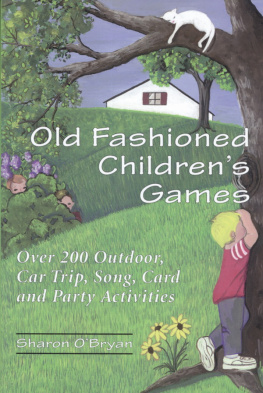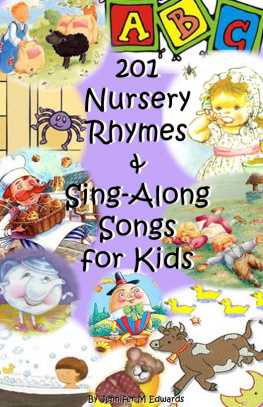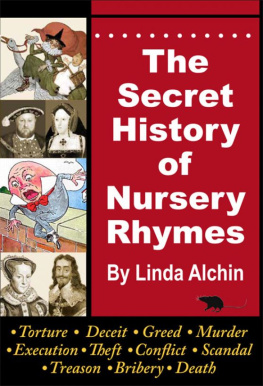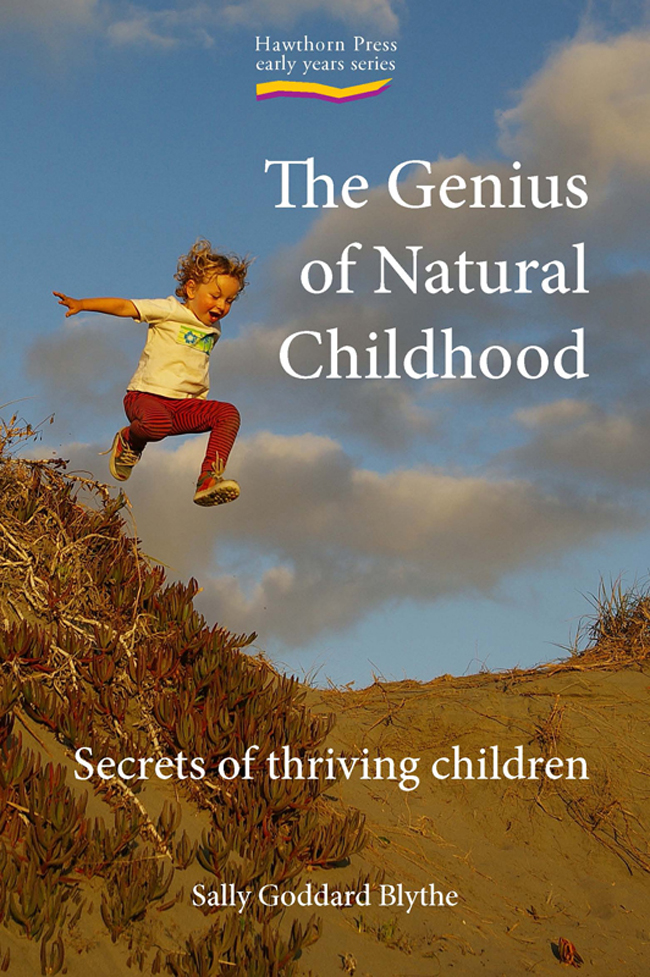The Genius of
Natural Childhood
Secrets of Thriving Children
SALLY GODDARD BLYTHE
Contributors
JANE WILLIAMS, PETER BLYTHE
AND ARLETTE OVERMAN
Illustrations by
SHARON RENTTA
AND
TOM KERR
The Genius of Natural Childhood 2011 Sally Goddard Blythe
Sally Goddard Blythe is hereby identified as the author of this work in accordance with section 77 of the Copyright, Designs and Patent Act, 1988. He/She asserts and gives notice of her moral right under this Act.
Published by Hawthorn Press, Hawthorn House,
1 Lansdown Lane, Stroud, Gloucestershire, GL5 1BJ, UK
Tel: (01453) 757040 Fax: (01453) 751138
E-mail:
Website: www.hawthornpress.com
All rights reserved. No part of this book may be reproduced, stored in a retrieval system or transmitted in any form by any means (electronic or mechanical, through reprography, digital transmission, recording or otherwise) without prior written permission of the publisher.
Cover illustration Getty Images
Cover design by Lucy Guenot at Bookcraft
Illustrations by Sharon Rentta and Tom Kerr
Typesetting by Bookcraft Ltd, Stroud, Glos GL5 1AA
Printed by Henry Ling Ltd, The Dorset Press, Dorchester
Every effort has been made to trace the ownership of all copyrighted material. If any omission has been made, please bring this to the publishers attention so that proper acknowledgement may be given in future editions.
Printed on paper sourced from sustained managed forests and elemental chlorine free
British Library Cataloguing in Publication Data applied for
ISBN 978-1-907359-04-0
eISBN 978-1-907359-61-3
For Henry Alexander,
the first of my grandchildren,
and
my other grandchildren waiting to be.
Contents
Acknowledgements
I am indebted to:
Martin Large, who first suggested this book several years before I was ready to write it, and continued to prompt me every few months to consider turning his idea into reality. His faith in my ability, his patience with my procrastinations, and his suggestions and support throughout the writing of the book have been invaluable.
Jane Williams PhD, Director of Toddler Kindy GymbaROO in Australia for writing and sharing ideas and activities from the Toddler Kindy GymbaROO programme.
Tom Kerr for the illustrations accompanying .
Professor Yair Schiftan for his wisdom, experience and sharing of knowledge about the importance of vibration for life, development and healing.
Professor Michael Lazarev for his insight and enthusiasm in explaining the science behind early communication, for providing a medical and pedagogic structure for mother-infant interaction, for marrying the artistic and scientific disciplines of music and medicine, and most of all for his poetry and music, which have benefited many thousands of children not only in Russia but increasingly in the rest of the world.
Arlette Overman for her contribution, A music teachers perspective on the importance of music in the early years in .
Dr. Peter Blythe for rewriting When two hearts were one, a fairy story for adults, originally written when he was a young man returning home from the Far East at the end of the Second World War.
Sharon Rentta for her timeless illustrations to accompany the chapters on lullabies, nursery rhymes and A Day in the Garden, and for the CD Wings of Childhood.
Roque and his parents for recording and sharing images of the first year of his life.
Charlotte, Maisie, Annabel, Zoe and their parents for sharing and giving permission for pictures of their natural childhood to be included.
Eve and her parents for making available photographs of exercise positions for .
Amanda Engelbach, editor of The Montessori European Journal, for permission to use an excerpt from the article Why boys and girls needs are different in the early years, originally published in The Montessori European Journal, AprilJune 2010.
The Community Care Inform website for allowing me to rework material originally written for them.
My editor Matthew Barton, who pointed out where sections needed modifying, corrected my mistakes, suggested additions, improved my wording, and made this book more readable.
And all who have been involved in the production of this book at Hawthorn Press.
Foreword
RICHARD HOUSE, PH.D.
ROEHAMPTON UNIVERSITY
Did many pre-technological ways of raising children often get it right after all? In her eagerly awaited new book, Sally Goddard-Blythe allies the virtues of old-fashioned music and movement with the latest insights of neuroscience, to demonstrate just this. The Genius of Natural Childhood is tailor-written for a technology-saturated generation of young parents who (through no fault of their own) are increasingly losing the capacity to live playfully and just be with their young children. For this reason alone, this book should find its way onto the bookshelf of every enlightened parent and education professional.
I first came across Sallys ground-breaking work over a decade ago when training in early-childhood (Steiner) education; and several years later, as the then editor of Hawthorn Presss innovative Early Years series (to which this book is the latest addition), I was delighted to help commission her seminal book, The Well Balanced Child: Movement and Early Learning (2nd edition, 2005). Sallys work is an inspiration to all who believe that young childrens developmental journeys are best understood and supported through genuinely holistic perspectives. More specifically, in showing us why the body needs to be at the centre of early child development, Sally follows in the auspicious footsteps of some of our greatest philosophers and theorists of early learning, not least Maurice Merleau-Ponty, Rudolf Steiner and Donald Winnicott. Winnicott, for one, would surely turn in his grave if he could witness the overly cognitive, body-neglecting, early-learning regimes to which a new generation of youngsters is often subjected and which, incredibly, is increasingly dictated by state regulations.
I write regularly for The Mother magazine, and a young parent recently wrote this in response to one of my articles:
The bit about how all parents and early years workers should be trained not to intervene in the young childs going-on being [really struck me] I was a very conscientious first-time mother, wanting to accelerate my daughters learning experience in every way possible. This involved structuring her day around what I thought she needed [but] I always found [this approach] instinctively wrong, too fast-paced for a small child, and exhausting for me! I used to feel I was being somehow neglectful if I wasnt doing something with my child. Thankfully, when my daughter turned two, I discovered a wonderful local Steiner Waldorf school [When she first visited the nursery there] it felt so right, and it felt like coming home. My daughter has thrived there ever since in the calm, harmonious and gentle environment I am much happier, more positive/contented and couldnt now give two hoots about whether my daughter has reached all the right milestones As I am now close to welcoming our second child I want to offer space, comfort and love rather than early educational experiences I keep myself occupied with my own useful activities (writing, painting, household chores, gardening, baking) rather than focusing all of my energies on my child. She happily imitates my activity one minute and then runs off for hours to play on her own without any need for me to disturb her. Less is definitely more









